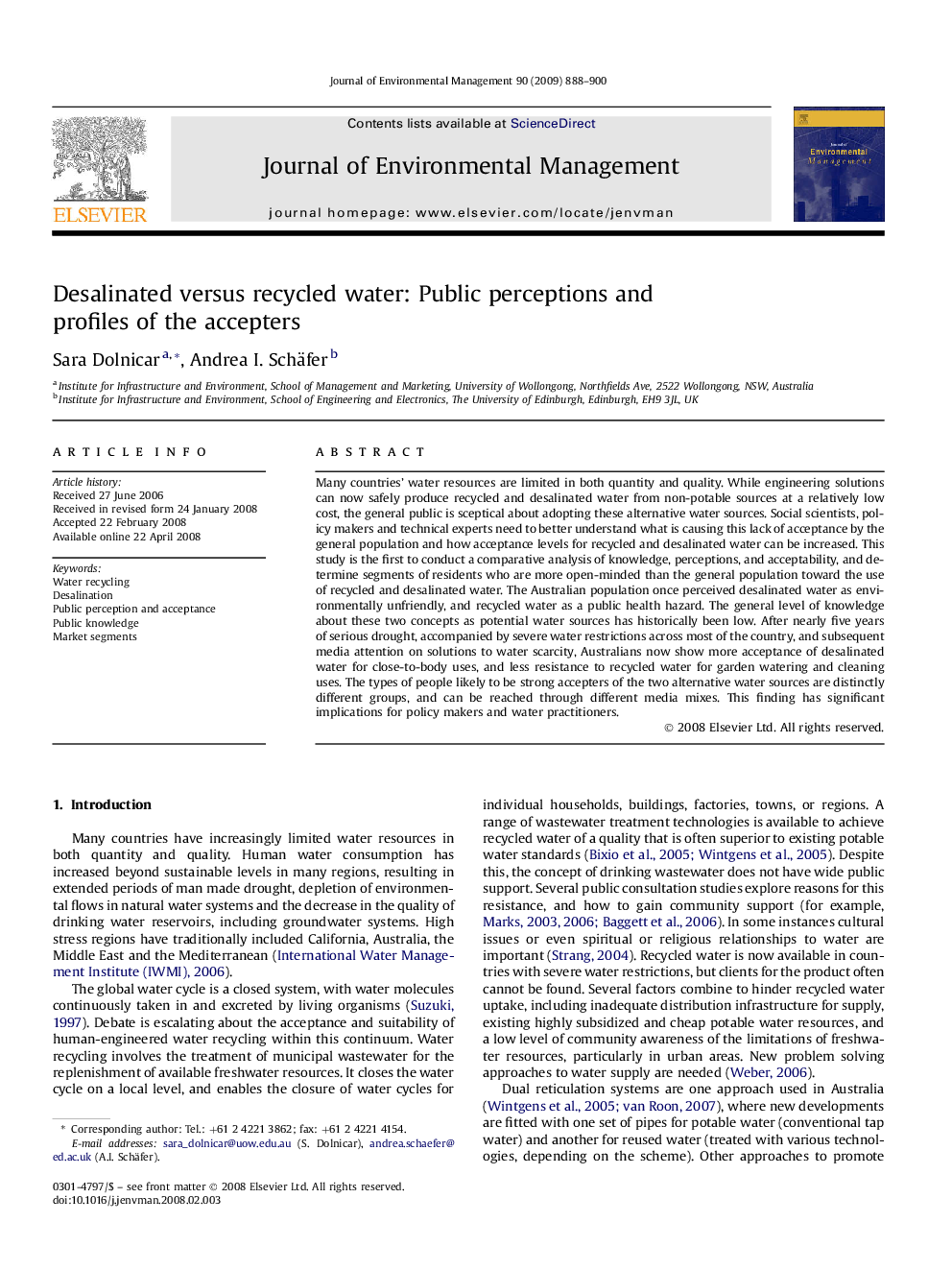| Article ID | Journal | Published Year | Pages | File Type |
|---|---|---|---|---|
| 1058428 | Journal of Environmental Management | 2009 | 13 Pages |
Many countries’ water resources are limited in both quantity and quality. While engineering solutions can now safely produce recycled and desalinated water from non-potable sources at a relatively low cost, the general public is sceptical about adopting these alternative water sources. Social scientists, policy makers and technical experts need to better understand what is causing this lack of acceptance by the general population and how acceptance levels for recycled and desalinated water can be increased. This study is the first to conduct a comparative analysis of knowledge, perceptions, and acceptability, and determine segments of residents who are more open-minded than the general population toward the use of recycled and desalinated water. The Australian population once perceived desalinated water as environmentally unfriendly, and recycled water as a public health hazard. The general level of knowledge about these two concepts as potential water sources has historically been low. After nearly five years of serious drought, accompanied by severe water restrictions across most of the country, and subsequent media attention on solutions to water scarcity, Australians now show more acceptance of desalinated water for close-to-body uses, and less resistance to recycled water for garden watering and cleaning uses. The types of people likely to be strong accepters of the two alternative water sources are distinctly different groups, and can be reached through different media mixes. This finding has significant implications for policy makers and water practitioners.
